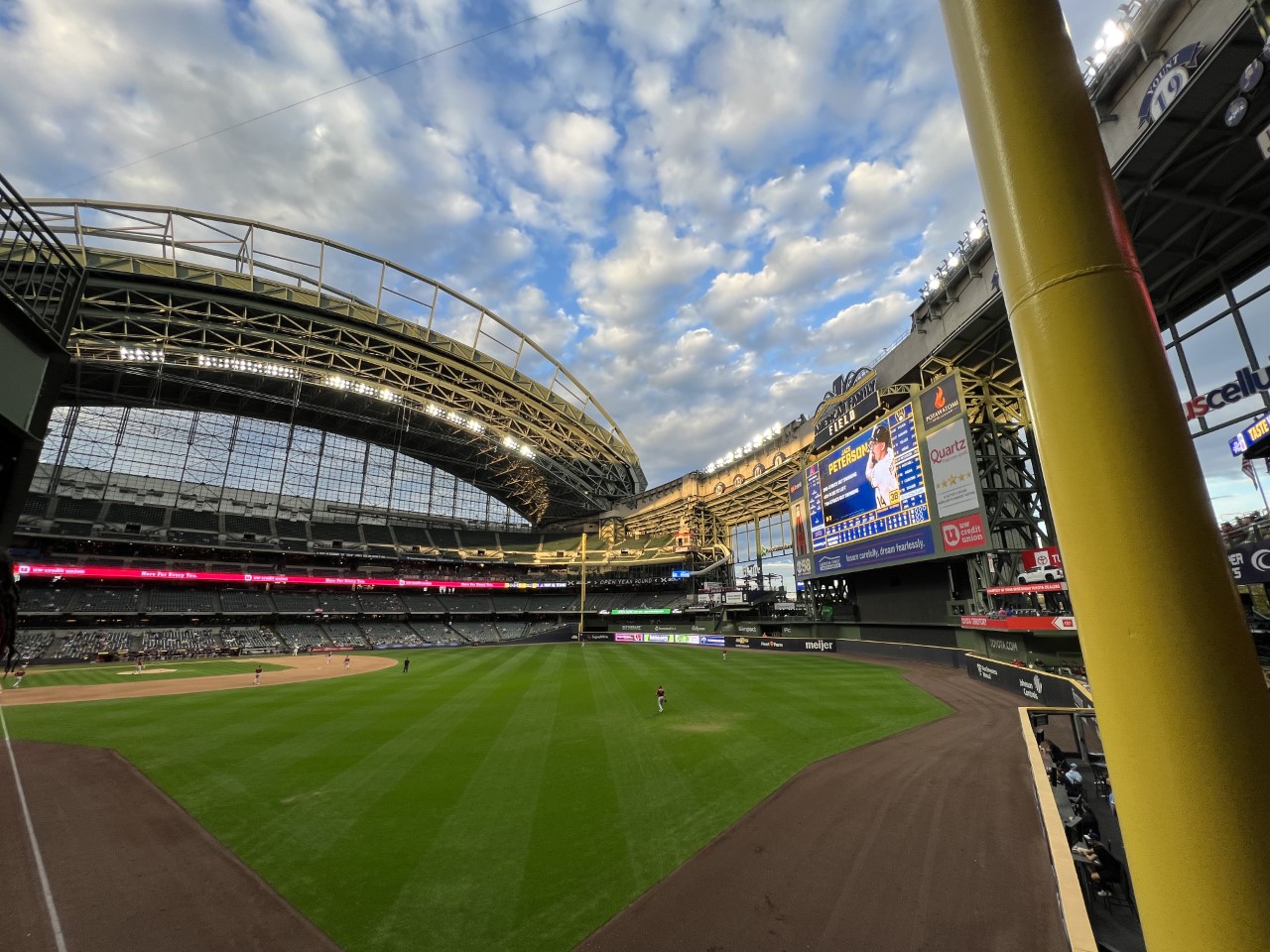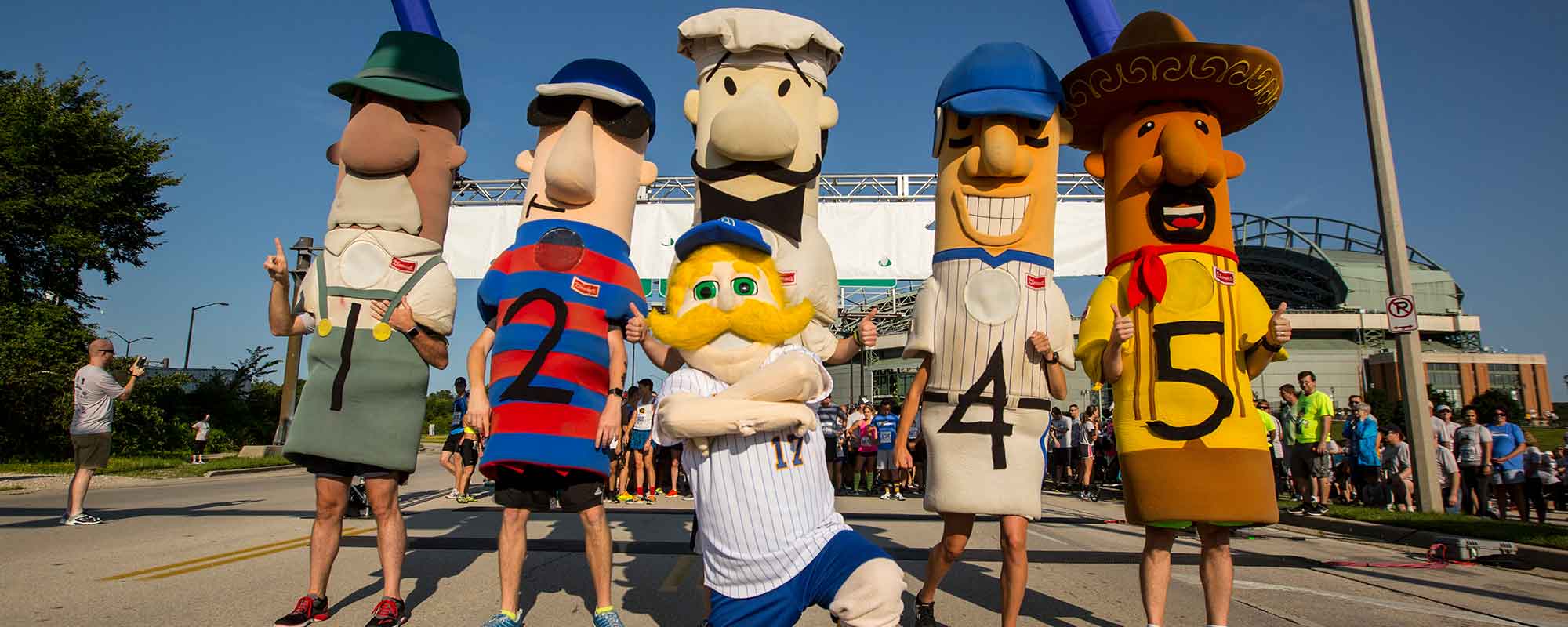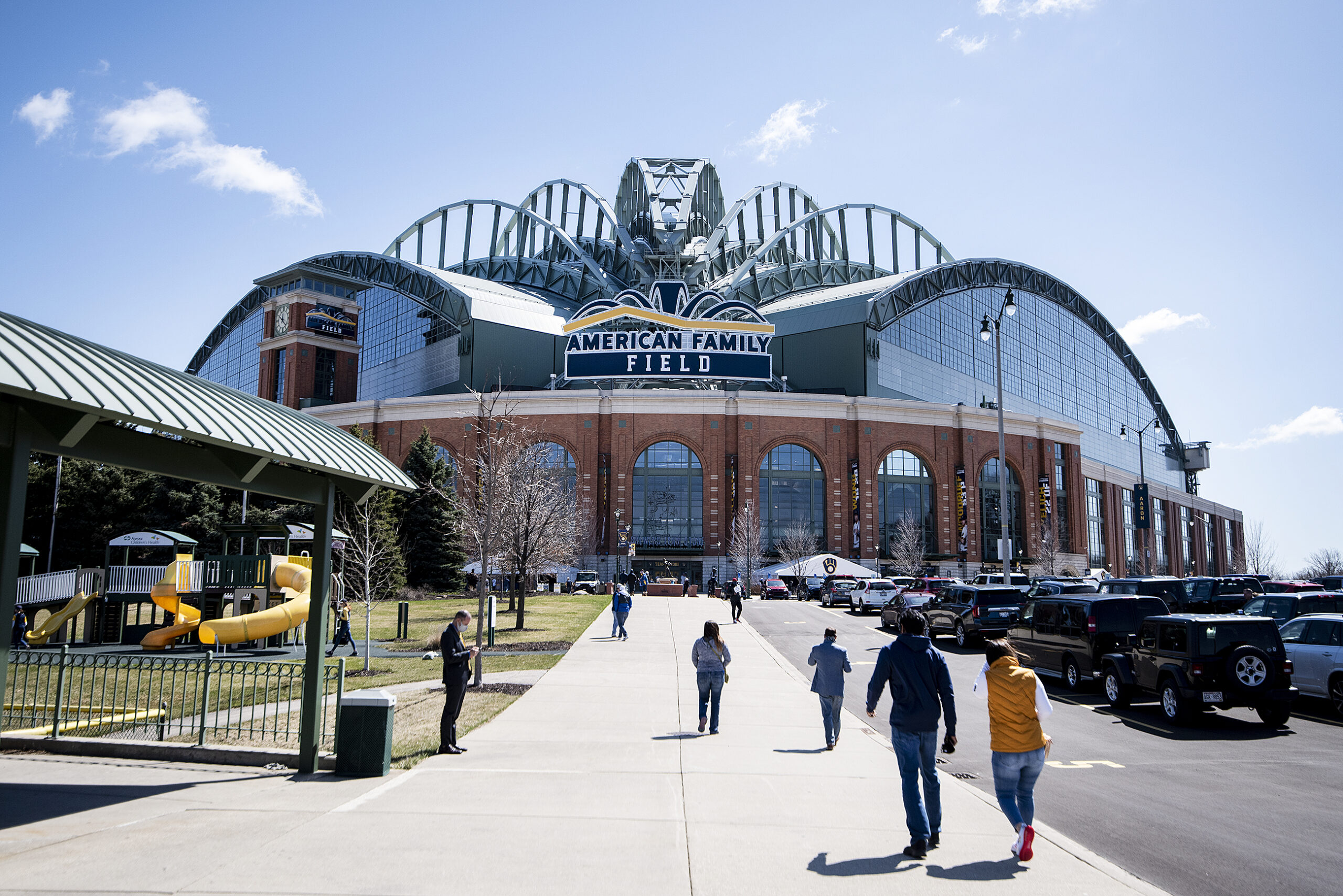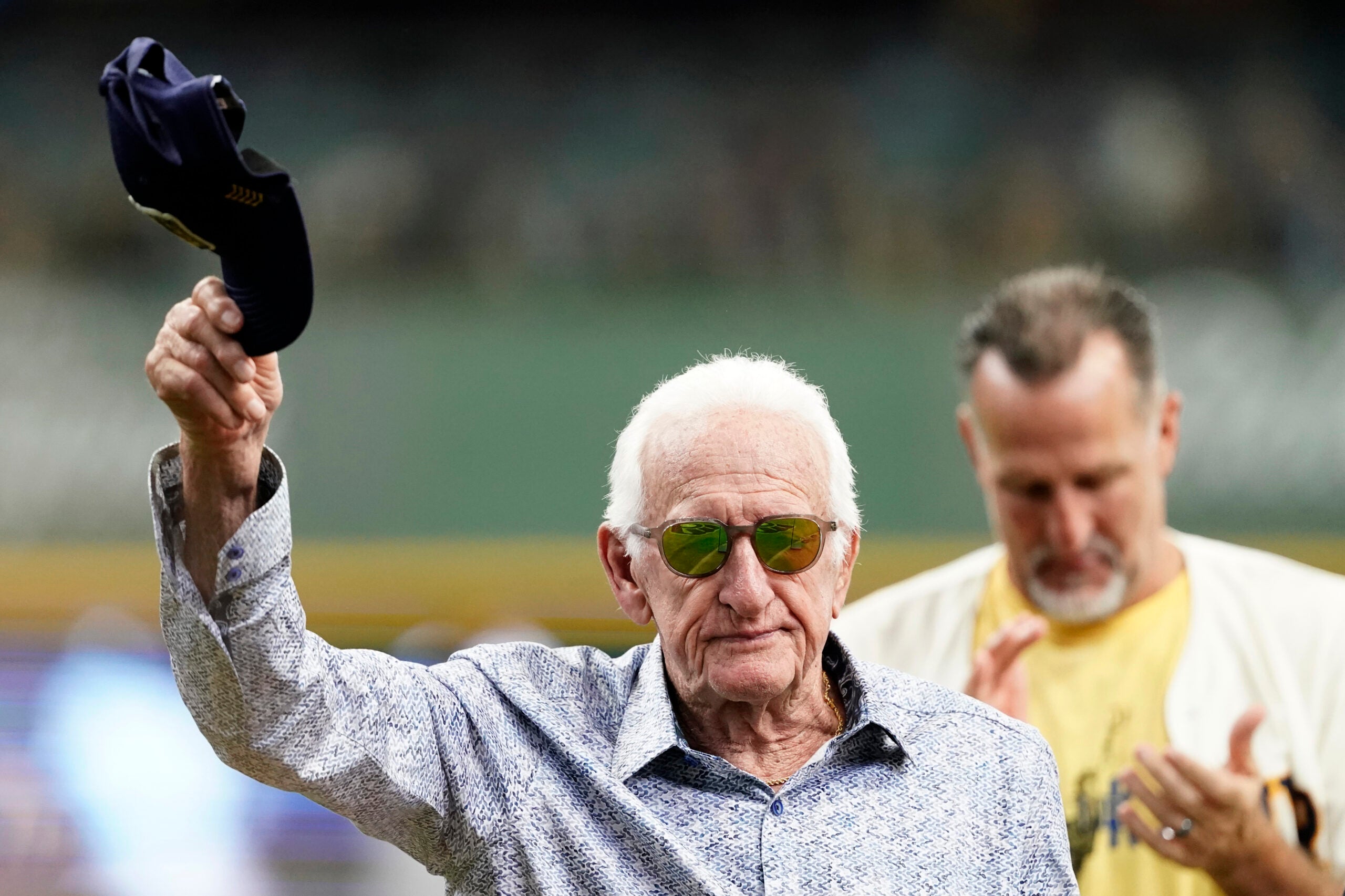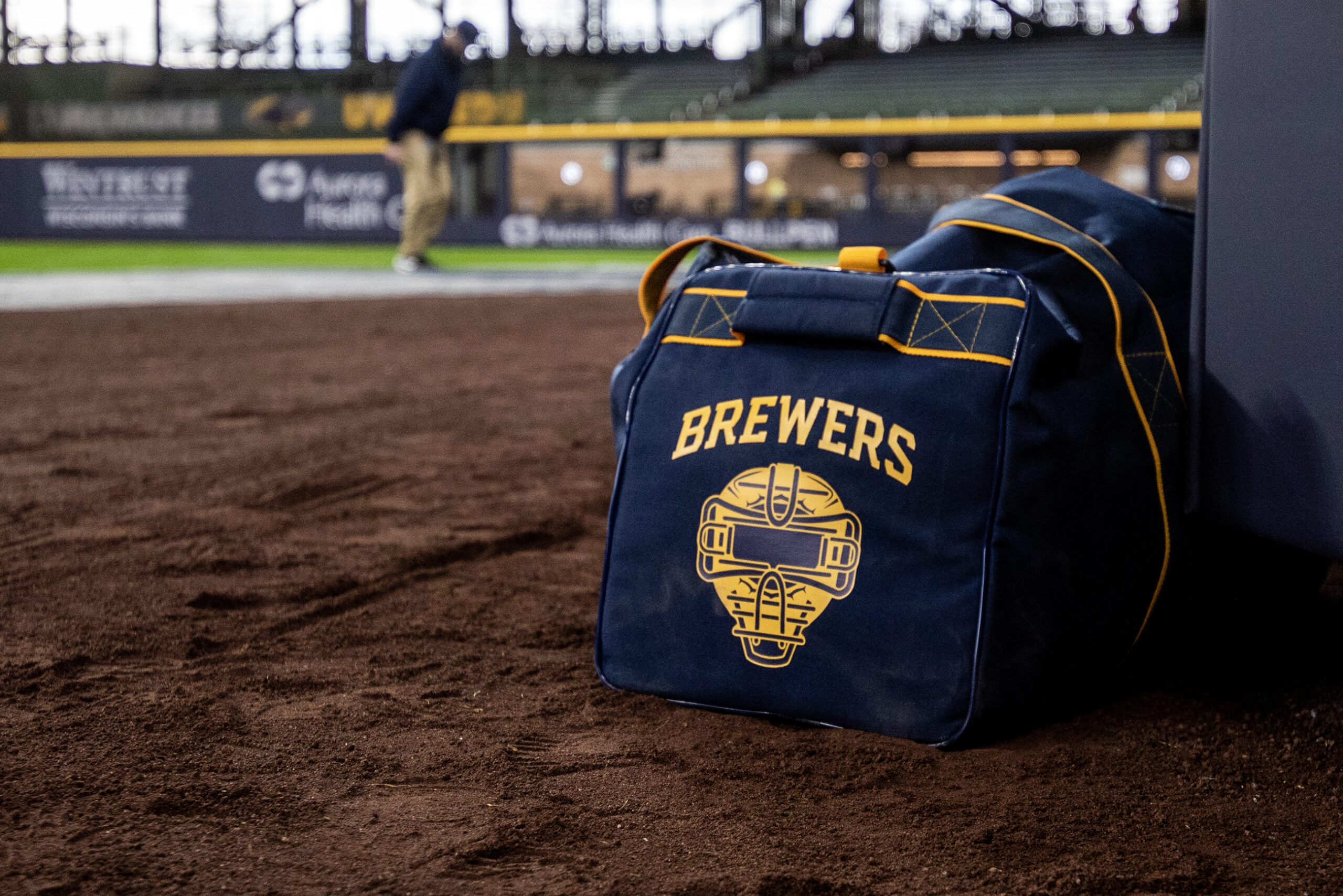A potential deal to keep the Milwaukee Brewers in Wisconsin and fund improvements at American Family Field is stuck in limbo, with local and state officials disagreeing about where money for the deal should come from.
On Monday, a Milwaukee County Board committee passed a resolution opposing using any county tax dollars to fund long-term renovations at the stadium. This, after Wisconsin Assembly Speaker Robin Vos, R-Rochester, has said he wants local money to be used in any such deal. The city of Milwaukee is dealing with what local leaders have called a budget “crisis,” while Milwaukee County officials say they’re facing a looming fiscal cliff with its budget.
Gov. Tony Evers in February proposed spending $290 million in state money on improvements at American Family Field, which opened in 2001. That proposal would have come in the form of a one-time payment using the state’s projected $7.1 billion budget surplus. As part of the deal, the Brewers would sign a new lease that would keep the team in Milwaukee until 2043.
Stay informed on the latest news
Sign up for WPR’s email newsletter.
But Vos, who was critical of that proposal from the start, said in March that deal was likely “dead.” Speaking at a Milwaukee Press Club event Friday, Vos said state lawmakers want to negotiate a plan for increasing state funding to local governments first before moving to the stadium deal.
“We’re negotiating on shared revenue first, so we haven’t really gotten to the point of getting into all the details of a Brewers deal or what it potentially would look like,” Vos said. “I think for many of my colleagues who don’t live in the southeastern Wisconsin region, the idea of writing a check out to any professional sports team in Wisconsin, is probably a nonstarter.”
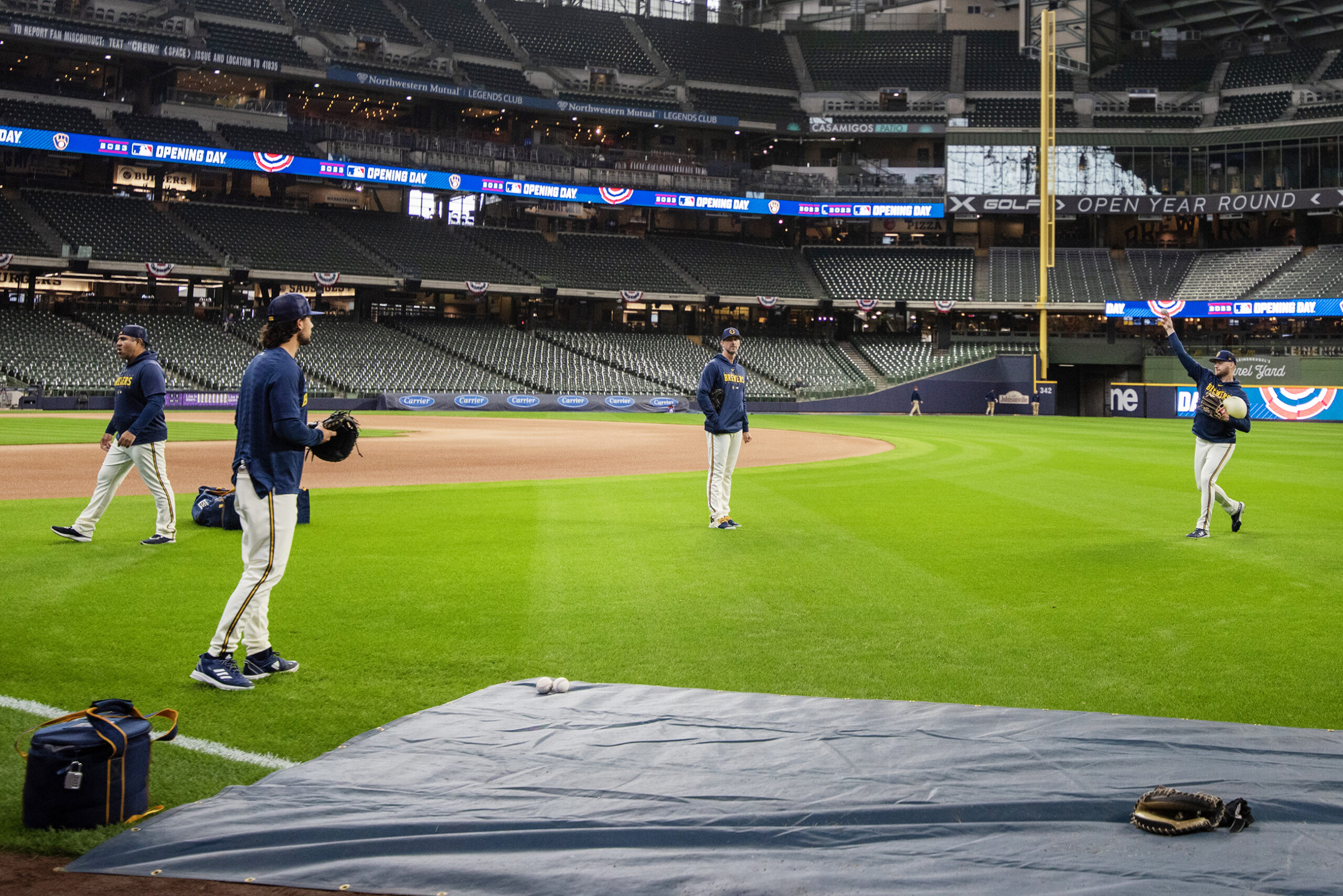
Vos said he’d like to see a plan for stadium improvements similar to the Milwaukee Bucks deal that kept the team in Milwaukee and provided funding for the Fiserv Forum. That plan, which was finalized in 2015, was structured as a public-private investment. Following negotiations with Republican lawmakers, the state’s portion of public funding for the arena was $80 million.
The 1995 Brewers deal to construct Miller Park authorized government bonding, or borrowing, to pay for construction of the stadium. Borrowing for the project totaled more than $259 million, according to a 2019 memo from the nonpartisan Legislative Fiscal Bureau. Taxpayers in Milwaukee, Ozaukee, Washington, Waukesha and Racine counties paid an extra 0.1 percent sales tax to retire that debt and the associated interest. Evers signed a law in 2019 requiring the local sales tax to expire in 2020.
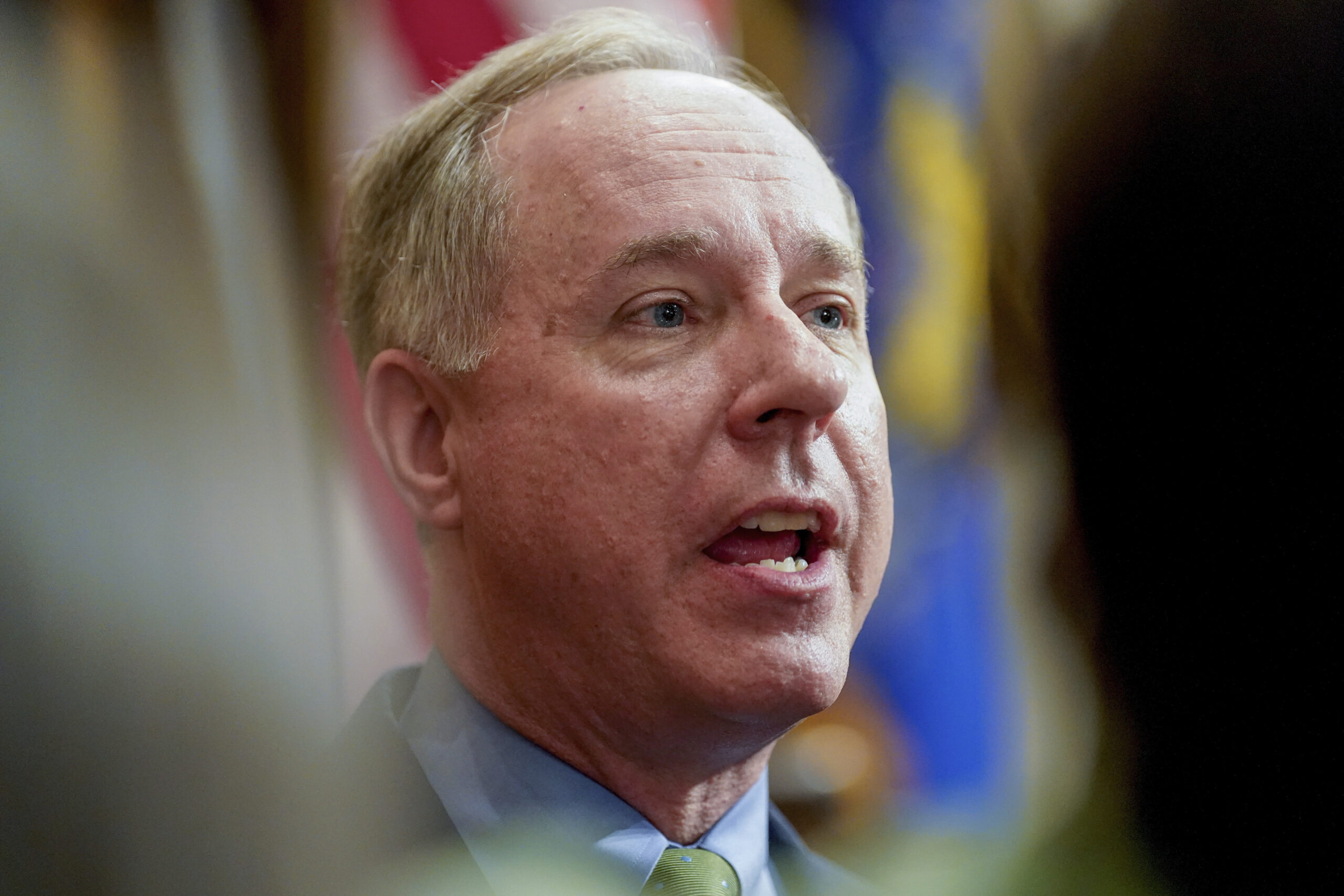
At the Milwaukee Press Club event, Vos did say there was a “strong incentive” to ensuring the team stays in Wisconsin, adding that a future partnership with the state is possible. But he also said he wouldn’t support a new tax for funding improvements.
“It’s got to be the locals also stepping up saying hey, here’s what the city and the county are willing to do to keep one of the biggest economic drivers for the city and the county, and not assume it’s all going to be state funded,” Vos said.
But the Milwaukee County Committee on Intergovernmental Relations passed a resolution Monday opposing the use of the Milwaukee County tax levy to fund any long-term renovations at the stadium, citing “more urgent, higher funding priorities” for the county.
While presenting the county’s budget last year, Milwaukee County Executive David Crowley warned that Milwaukee County will soon not have enough money to fund essential services like public safety, parks, bus routes and emergency services.
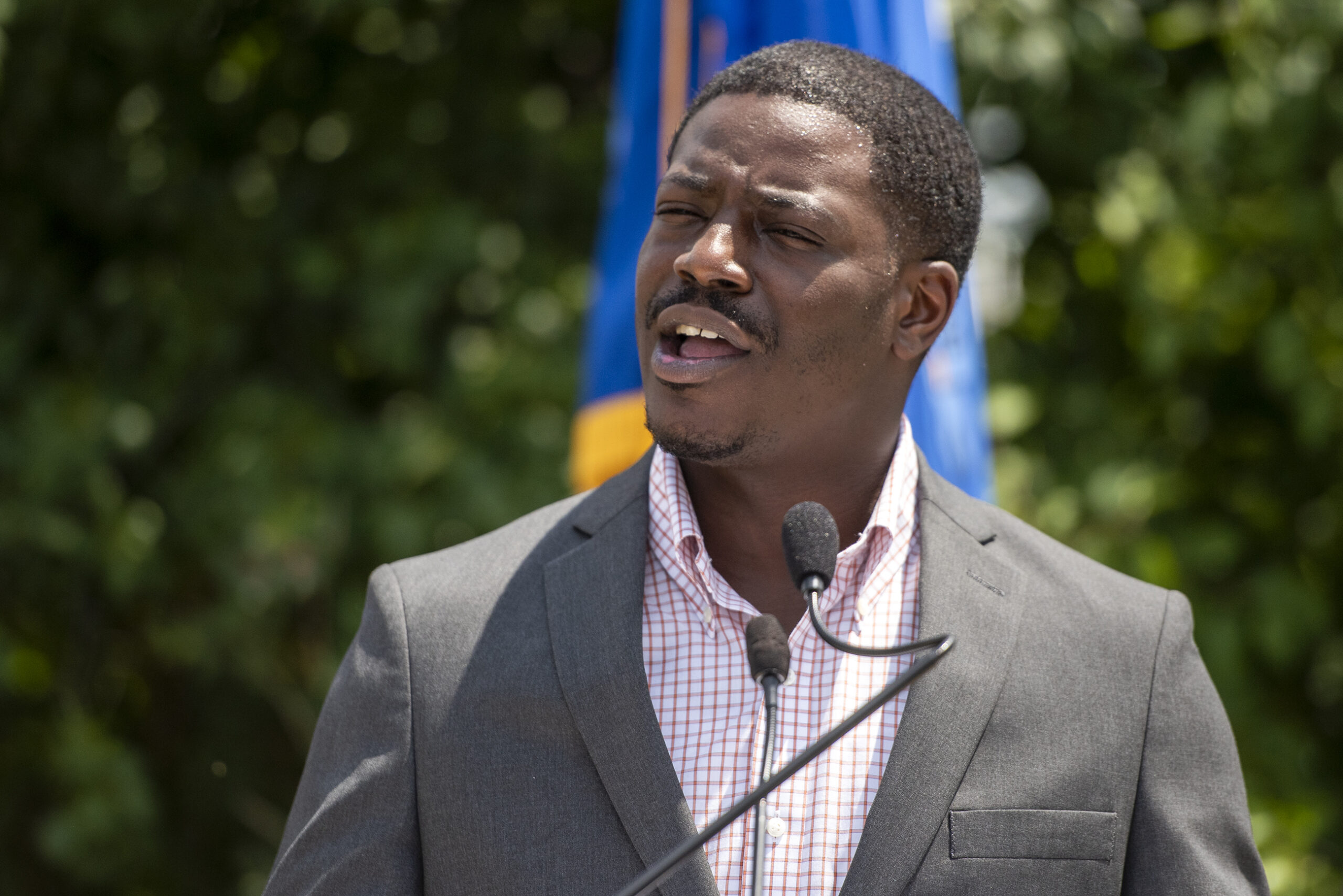
The resolution, which received bipartisan support on the committee, will be voted on by the full county board at a future meeting. Milwaukee County Board member Steve Taylor, who said he’s a Republican like Vos, supported the resolution. Taylor said using local funds for a stadium deal would take “precious resources” away from the county. The committee also passed a resolution Monday that calls for state lawmakers to remove several restrictions placed on Milwaukee in the current shared revenue proposal.
“We just were debating the fact that we don’t have enough shared revenue, we need a sales tax, and at the same time that these conversations are taking place, we’re basically being told … you’re going to be paying for this,” Taylor said during the meeting.
Milwaukee County Board member Ryan Clancy, who is also a state representative and a member of the socialist caucus, said he doesn’t believe public dollars should be spent for stadium improvements.
“You know legislation is bad when both the socialists and the conservatives on the board agree enough to sign onto the same resolution opposing it,” Clancy said.
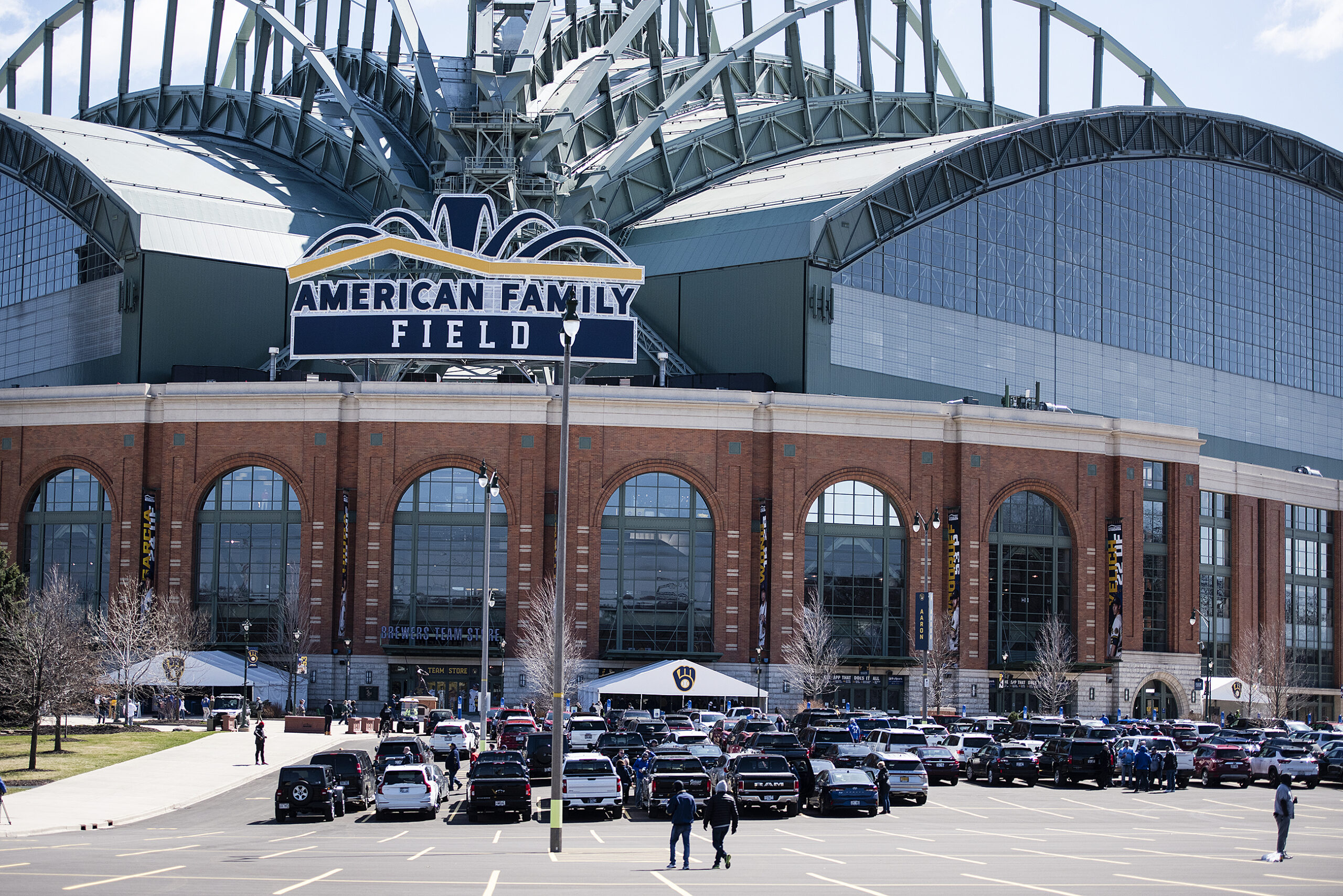
The Southeast Wisconsin Professional Baseball Park District is charged with overseeing and maintaining American Family Field. Evers’ office said without funding from the state, the district does not have the resources to meet its obligations to maintain the stadium. During a public forum last year, Rick Schlesinger, the team’s president of business operations, mentioned American Family Field’s trademark retractable roof as one of the features most in need of attention at the stadium.
On Opening Day in April, Schlesinger said he was optimistic a deal would be struck.
“We’ve had a lot of discussions with folks on both sides of the aisle. … We’re very optimistic, because what we’re hearing in Madison is the ultimate objective everybody shares, which is keeping the Brewers here long-term in a facility where our landlord, the stadium distinct, has sufficient funds to meet its obligations,” he said.
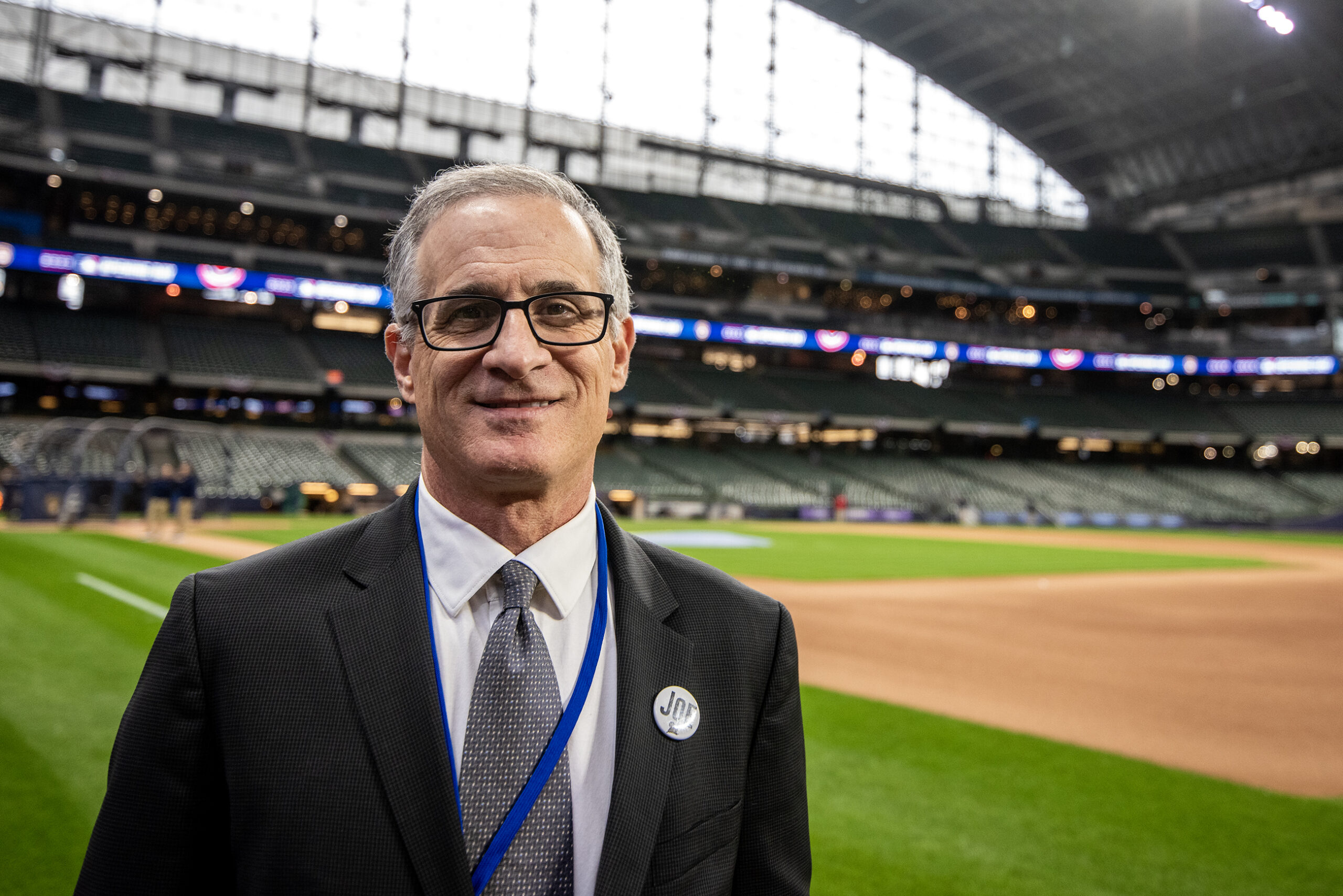
Brewers owners haven’t made a public statement about leaving Milwaukee, but some supporters worry that without the funding, the club could relocate when its lease expires in 2030. Recently, a diverse group of statewide leaders banded together to form the Home Crew Coalition to ensure that doesn’t happen. Omar Shaikh, a Milwaukee restaurateur and developer, is the chair of the coalition. In a statement, he said he’s still optimistic a deal will soon occur.
“It’s clear that everybody wants to work towards a solution that saves Major League Baseball in Milwaukee,” Shaikh said. “Our leaders in Wisconsin are taking this issue seriously, and I’m confident that we will continue building bipartisan support around the ballpark.”
Wisconsin Public Radio, © Copyright 2025, Board of Regents of the University of Wisconsin System and Wisconsin Educational Communications Board.
